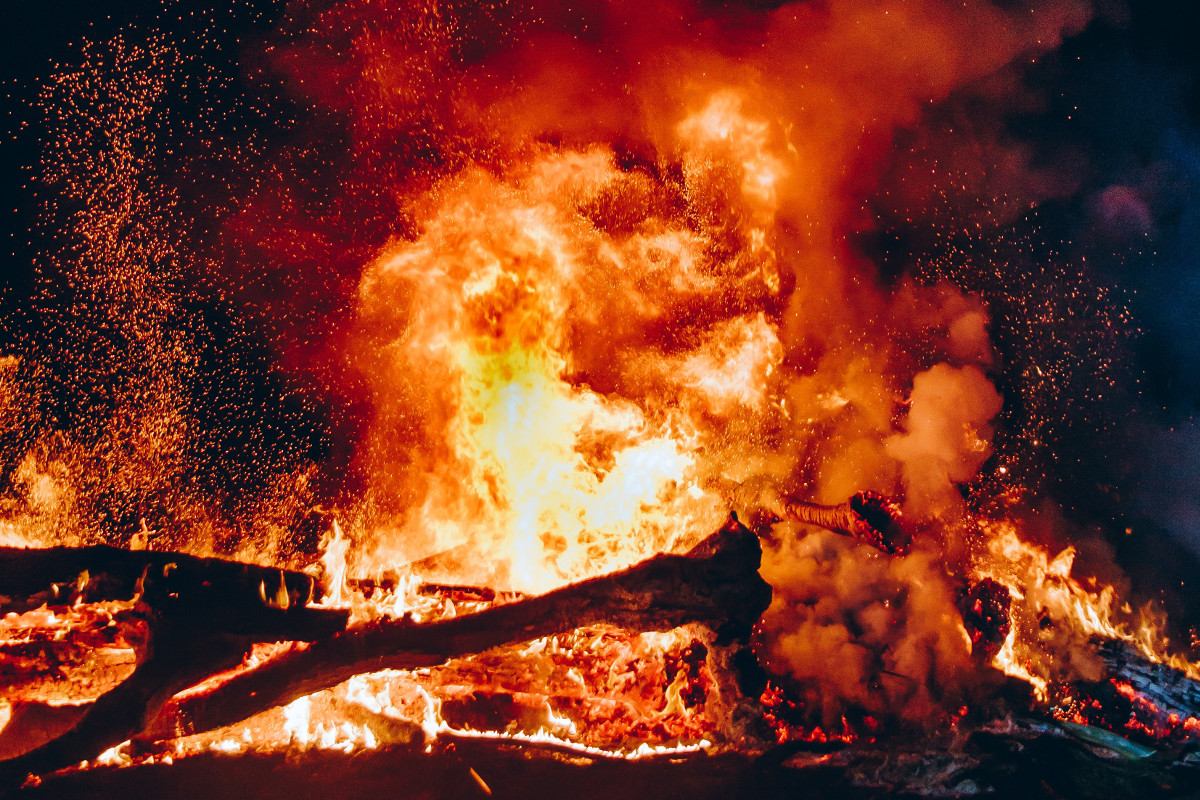by Liam Campbell
In 1997, forest fires in Indonesia grew so large that they accounted for 40% of global emissions during that period. The Borneo rainforest is the most ancient in the world, having taken 120 million years to evolve into its current state of rich diversity. Indonesia is also home to some of the world’s largest tropic peat bogs, deep and vast stockpiles of carbon which have formed over millennia. When these peat bogs ignite they are almost impossible to extinguish because they burn deeply into the Earth and smoulder for weeks or even months, and they can also release millions of years worth of stored carbon into the atmosphere very suddenly. Although seasonal fires are common in the Borneo, climate collapse has made the rainforest more susceptible, and the magnitude of this year’s fires are already unfathomable.
Many of the fires we’re seeing right now are caused by exploitative agriculturalists who are burning the rainforest to open land up for human crops and livestock. In doing so, they are destroying 120 million years of evolution and rapidly annihilating one of the Earth’s most diverse and ancient living ecosystems. Although Indonesia claims to be doing “everything in their power” to extinguish the fires, they are not doing nearly enough to prevent them from happening in the first place. Only about 200 suspects have been arrested in relation to the arsons, and it is likely that many of them will be released without charges or consequences. It is understandable that individual farmers may be tempted by the prospect of opening more land for profitable exploitation, but the act of burning such an ancient ecosystem is among the worst crimes a human can commit; it not only endangers the rest of the planet’s climate, it destroys one of the most ancient living systems on this planet.
Most of the fires were started by palm oil plantations, which are often owned by large corporations. Officials estimate that about 80% of the fires were set intentionally and they now number in the thousands, with 2,900 especially bad hot spots. In all, only about two dozen palm oil plantations have been temporarily shut down in connection to arsons, they are primarily owned by Malaysian and Singaporean companies. These companies are unlikely to face significant charges or repercussions, and will likely return to increasingly profitable business after paying fines.


You need to connect with netizens in Southeast Asia. Their protests against the haze is deafening.
The natural world and people who live there in Indonesia have virtually been destroyed by civilized influence from the Islamic world. Just like Christians destroyed the Americas, Muslims have destroyed Indonesia. This story is an example of that destruction. And the government of Indonesia is a big part of the problem, as pointed out undiplomatically by Harrison Ford in a TV episode about palm oil plantations destroying the rainforests of Indonesia.
Under natural, pre-climate change conditions, how often would natural wildfires occur in tropical rainforests? My guess is very seldom if at all.
The coordinated use of drones in multiple areas could also cripple the airline industry — as was demonstrated fairly recently by a lone drone operator outside London.
The problem, of course, is that if you do it without warning, you could bring down an airliner, randomly killing hundreds of people. And if you issue a warning of drone activity, the state will likely track you down, ground your drones, and take you to prison.
Here’s a low-tech alternative I once used innocently as a child: Someone could fly a sky blue-colored box kite (preferably a couple of them, tied to trees, some distance apart) on a mile of string, directly along the landing path of incoming aircraft, on a day with a light but steady breeze. (You can’t get a kite airborne in no wind, and too much wind can either fly it horizontally, or break the string.) Call in a warning as soon as the first kite is airborne.
Same low-tech principle as firing a spool of uninsulated wire over a power substation. Minimal investment; high return.
Re rainforest destruction for palm oil production: I recently heard on France 24 that the deforestation of Madagascar (at least 50% of the island deforested since 1950) is driven primarily not by subsistence farmers working for themselves, but by subsistence farmers paid an irresistible amount of money by a Chinese corporation to grow corn and soybeans for export to China to feed livestock. The rainforest there is currently being destroyed at the rate of over 700 square miles per year. Same game as in Brazil.
The sabotage of Chinese freighters is also long overdue